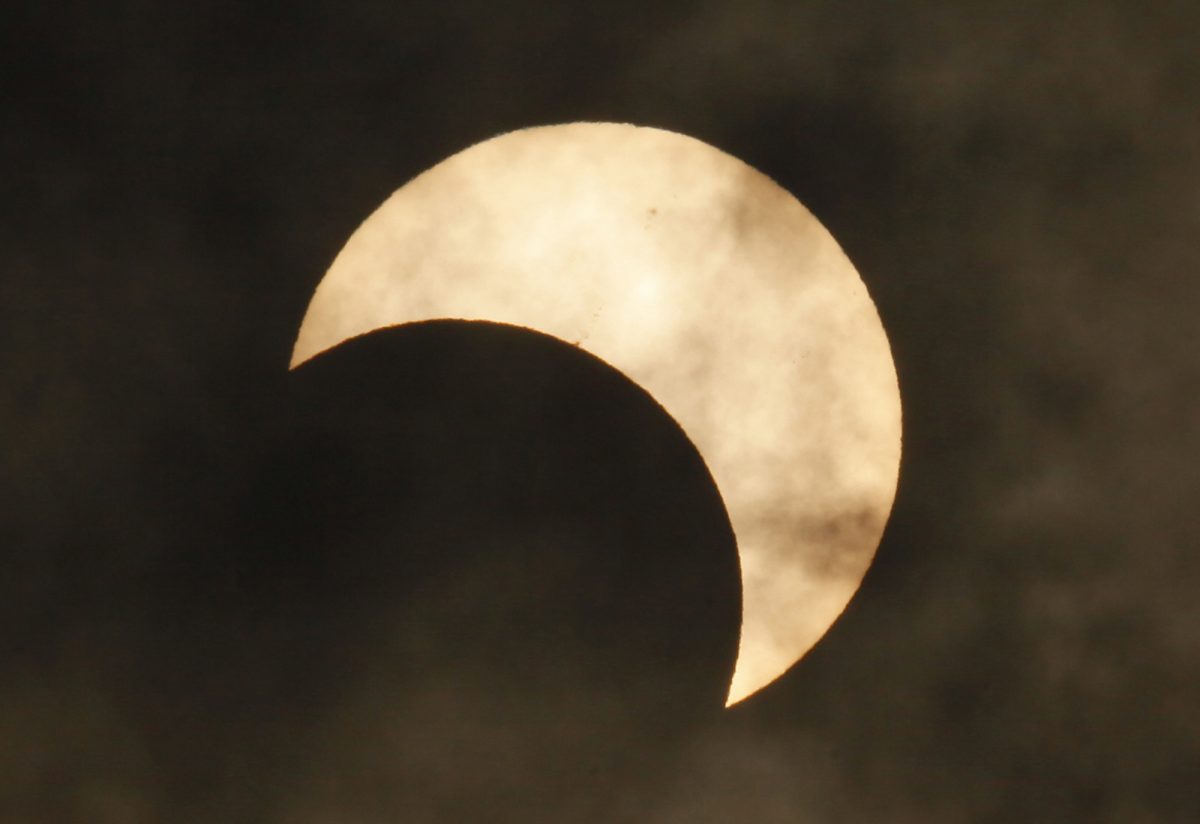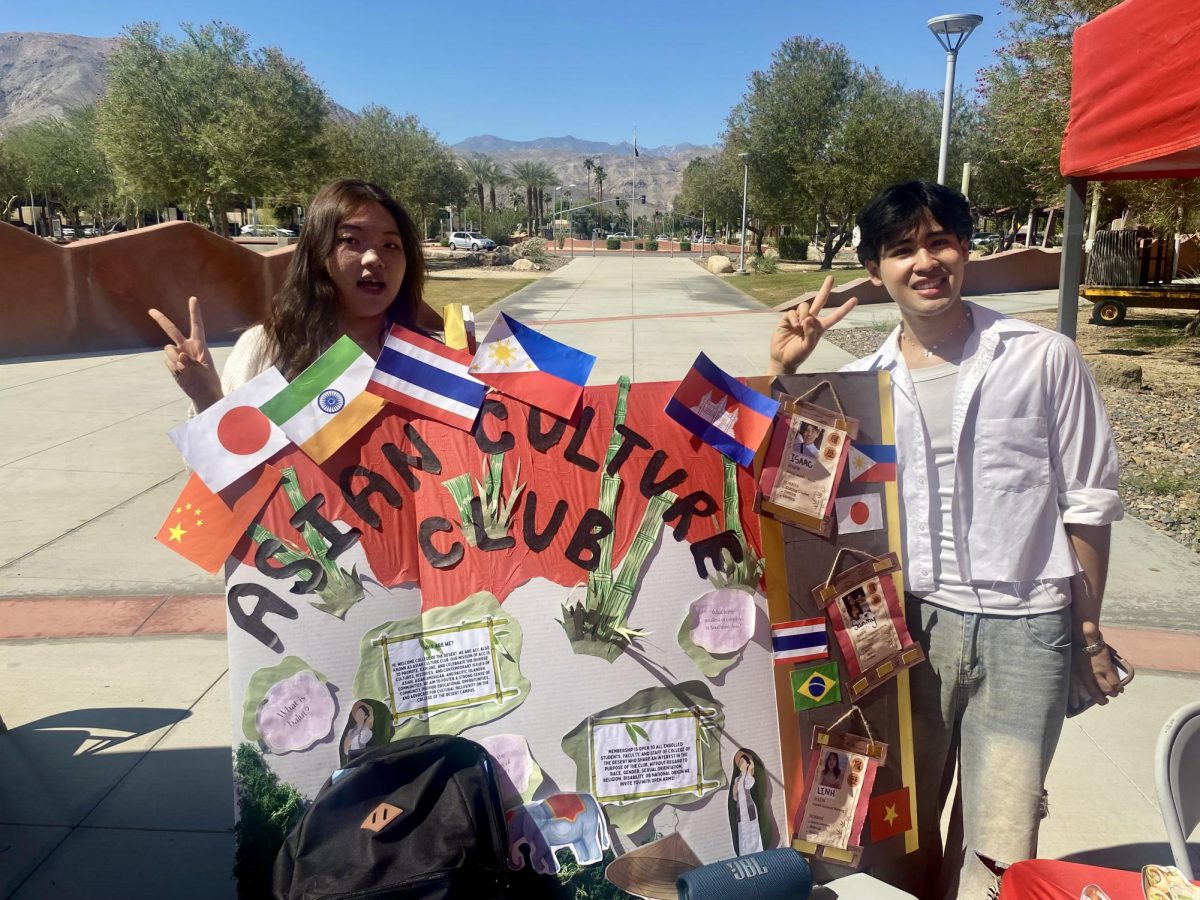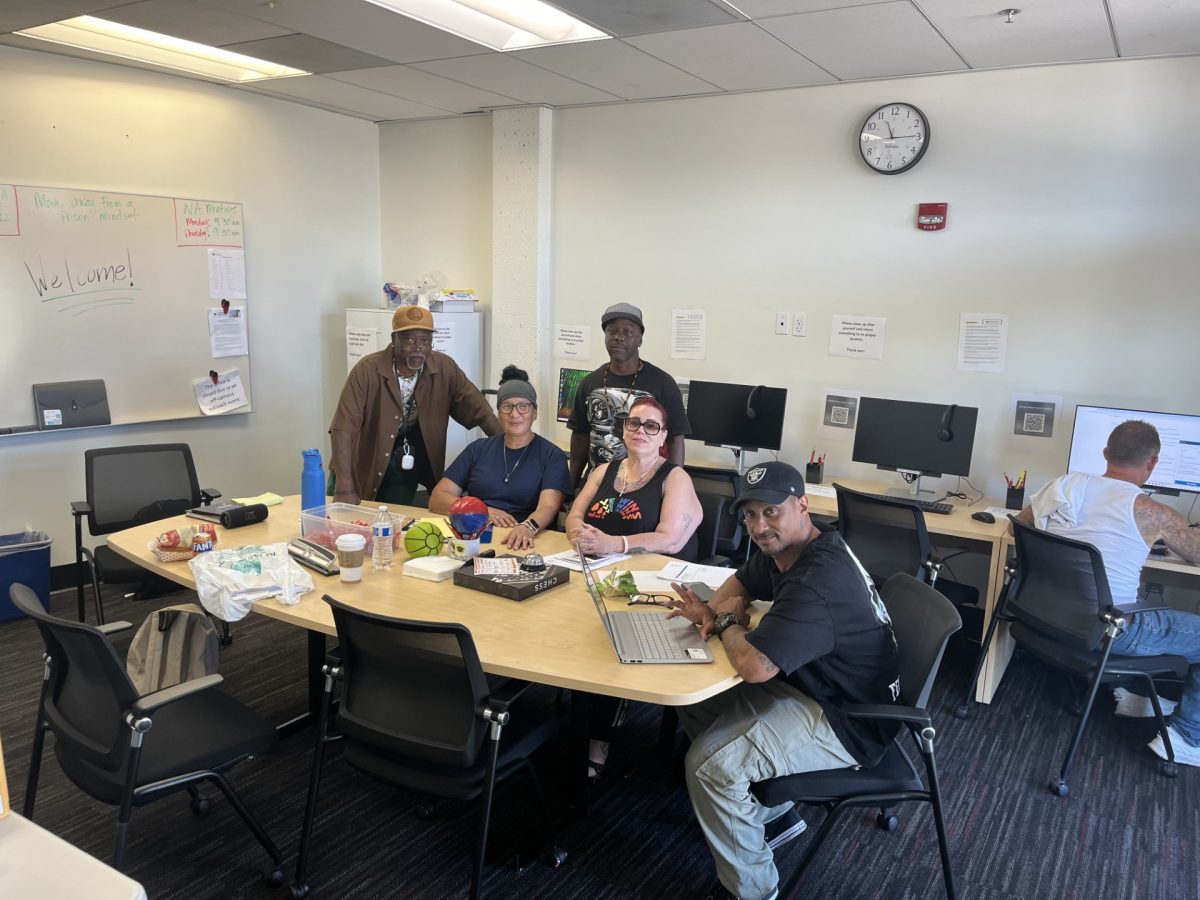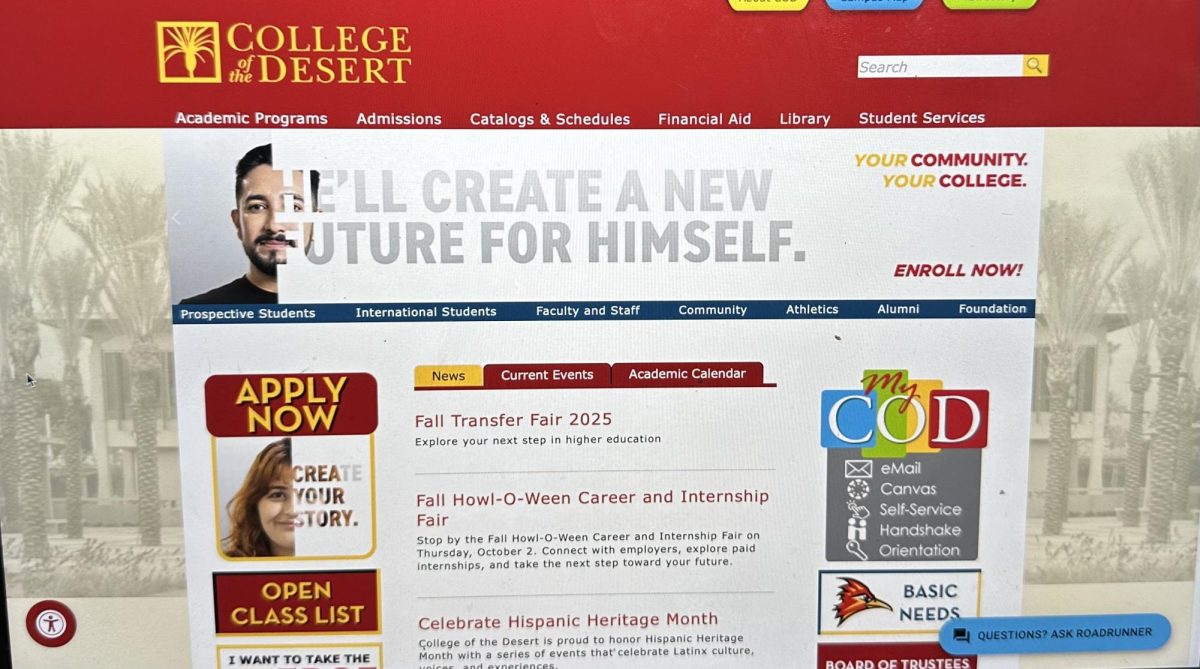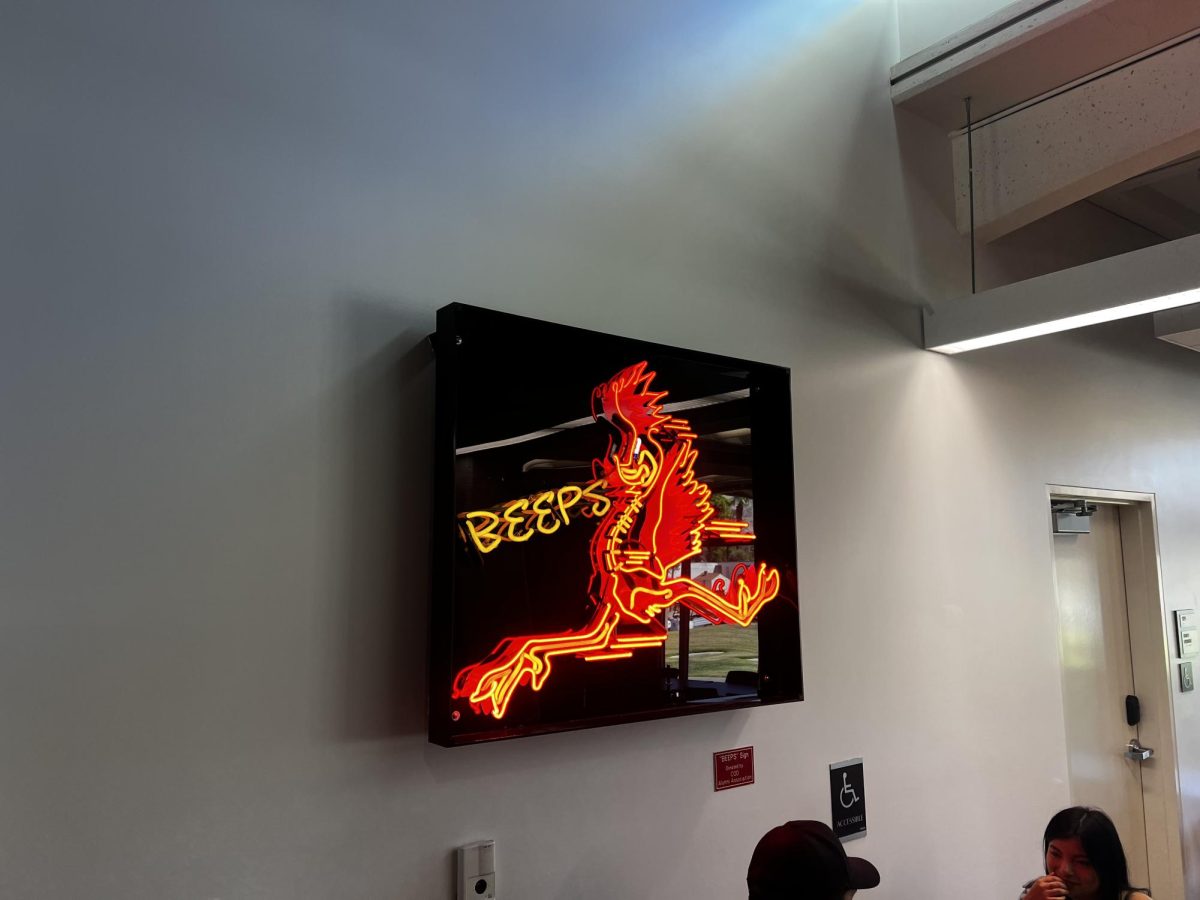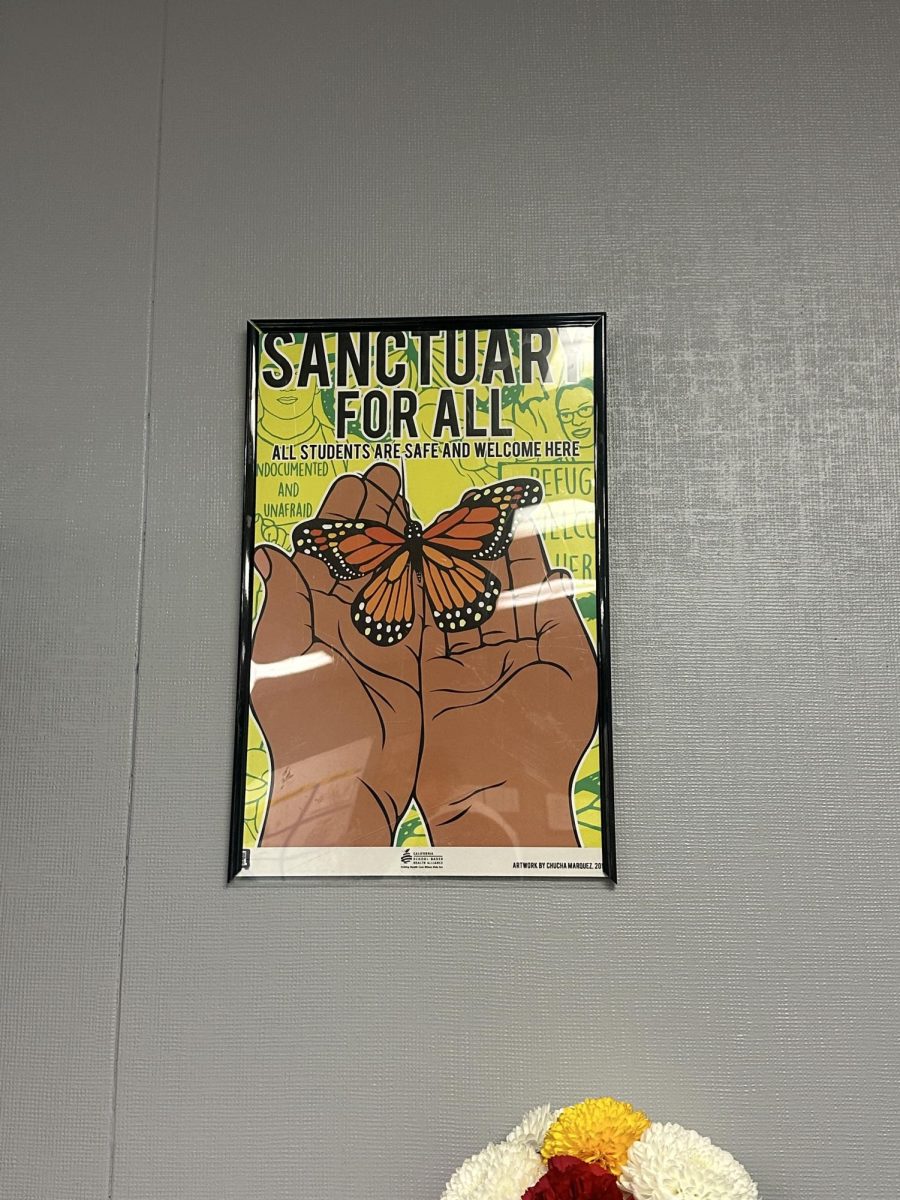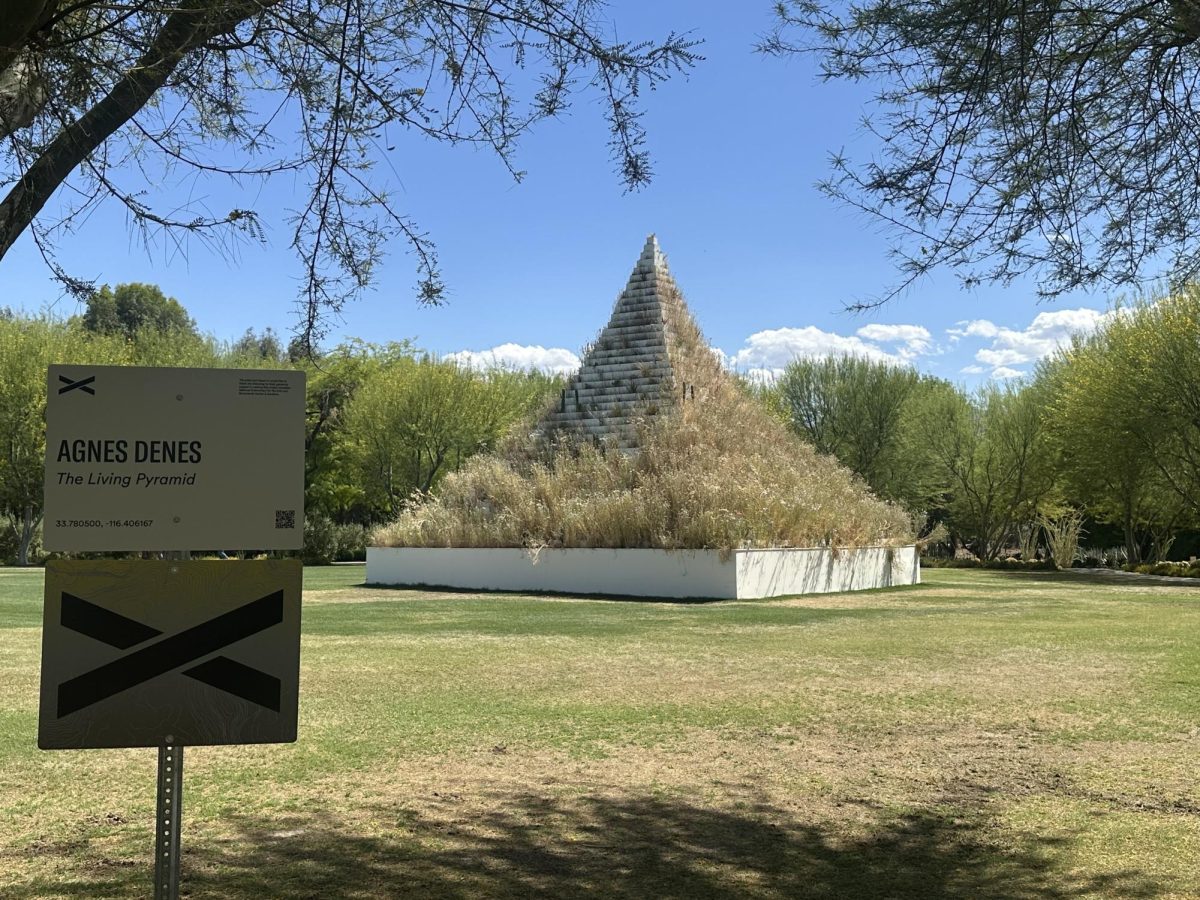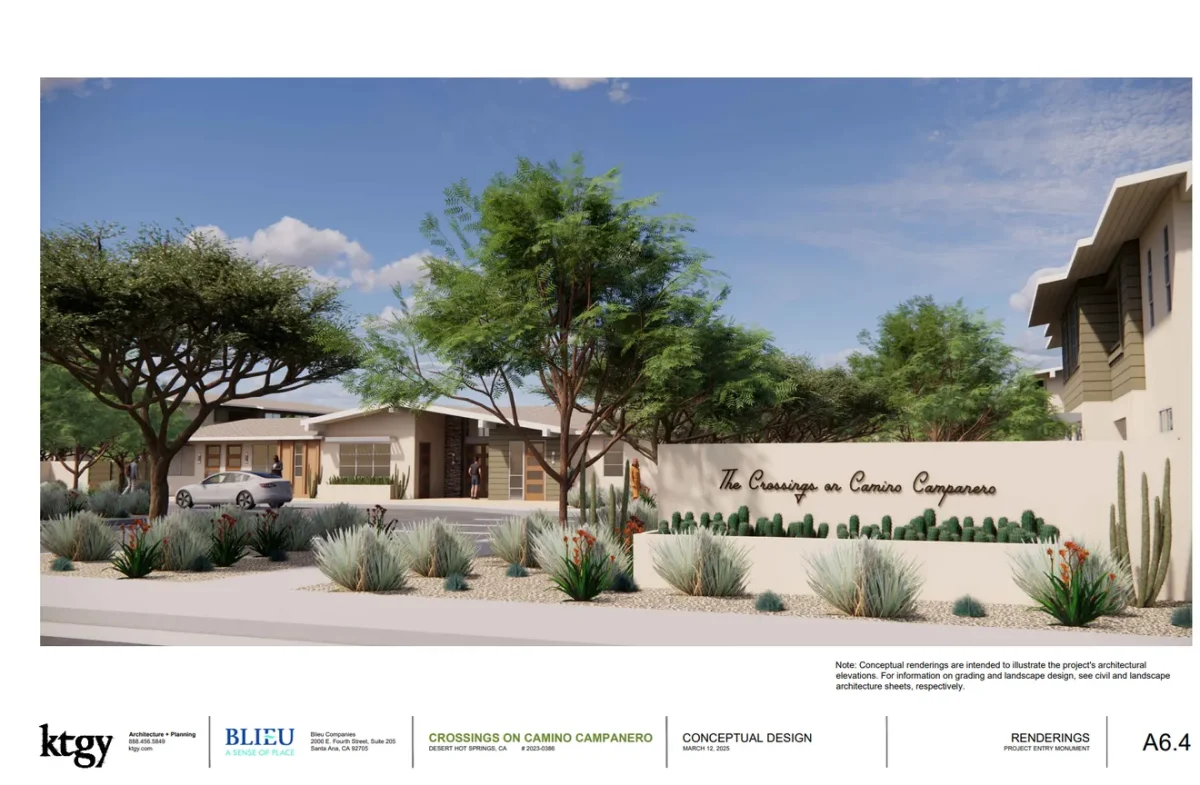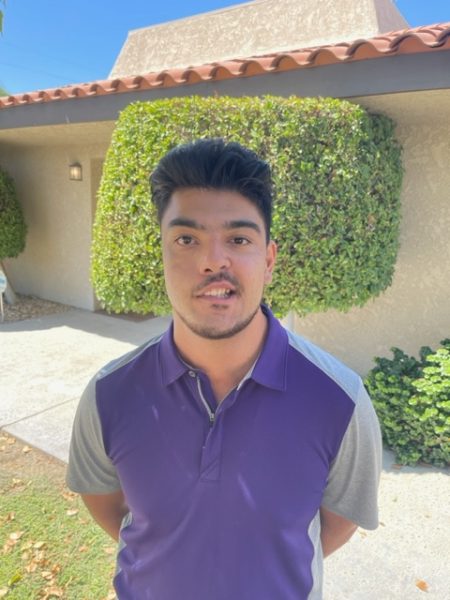On April 8, College of the Desert hosted a one-of-a-kind solar eclipse viewing event for students, faculty, staff and Coachella Valley residents.
The event occurred outside the Palm Desert campus’s H.N. and Frances C. Berger Science Building. Two STEM professors were present to answer questions about the solar eclipse. At the same time, equipment such as protective glasses, mirrors, binoculars, and a telescope were provided for people to view the solar eclipse.
STEM Professor Amira Elsenousy discussed solar eclipses and their formation, saying a solar eclipse occurs when the moon passes between the earth and the sun, covering the sun. It’s what happens when the moon’s shadow covers the sun’s radiation. “The solar eclipse is one of the rare phenomena in nature and doesn’t happen very often, so it’s important to learn how it forms and is created,” said Elsenousy.
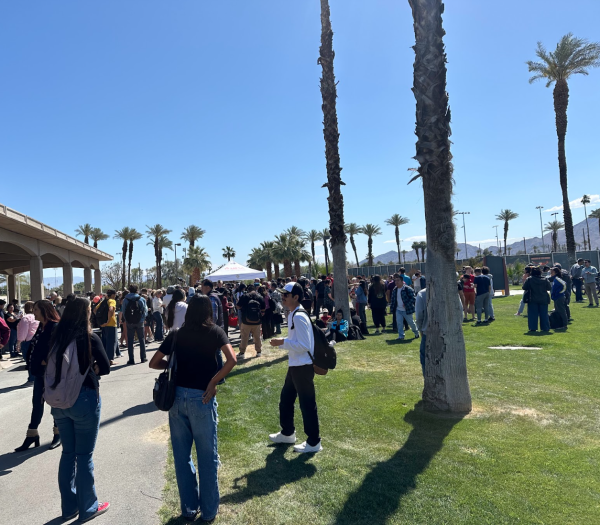
Ashton Reyes, one of the volunteers at the event, detailed some interesting facts about the solar eclipse. “One cool thing about the solar eclipse is that the Sun is at a solar maximum. Being able to look at the solar eclipse, you will be able to see three dark spots, and many more dark spots around the sun where there are high levels of solar activity,” Reyes said,
Reyes also said, “Once everything gets dark and the moon completely covers the sun, there is a bright ring of light, almost like burning magnesium, which burns super white and could damage your retina.”
Reyes also advised students aspiring to enter astronomy: “I recommend talking to professors because they are so knowledgeable. If you find their work interesting enough, they will increase your passion for astronomy and provide you with much information,” said Reyes.
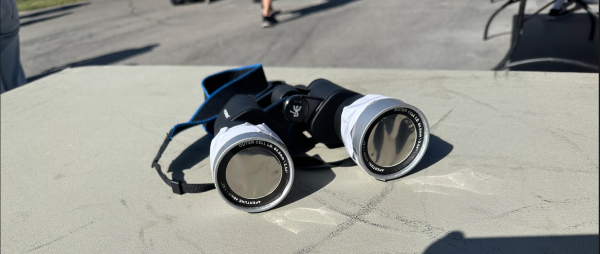
STEM Professor Ahmed ElShafie said students can apply for a couple of astronomy classes, such as collective astronomy, which is one-on-one. “We also have planetary astronomy to learn more about the planets and the solar system, and we also offer undergraduates research experience for hands-on experience,” ElShafie said.
Organizers said they hope students can understand an eclipse and want to learn more. For more information about the College of the Desert’s science degrees and courses, visit the College of the Desert.

